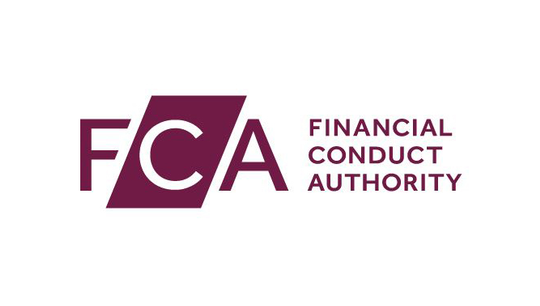The challenge for UK SMEs is an opportunity for the new breed of lenders
By Craig Reeves, Founder, Prestige Asset Management / Prestige Funds
Published: 13 July 2018
Regulation, red tape, Brexit – clouds with silver linings for private debt?
Owners and managers of small and medium-sized enterprises (SMEs) in the UK may feel that the world is out to get them. Running a small business is tough enough without the panoply of obstacles that have been inadvertently created for them over the past few years with the generation of mountains of post-2008 ‘red tape’.
There are political and economic clouds that continue to swirl over the future of the UK. The stream of bad news seems never-ending. As a fund manager that manages a dedicated UK centric investment strategy, we are often asked by investors to address this news flow. How, they ask, will private debt as an asset class be able to flourish with all this going on?
The banks beat a retreat
A week does not seem to go past without issues being thrown up around one or more marquee names in the banking industry. Yet all this bad news comes in the wake of the introduction of some of the toughest banking and capital adequacy regimes the industry has ever seen. We have seen a massive transition in the way banks are lending to business.
M4 net lending to small and medium enterprises in the UK (and it is a pattern that is reflected in other markets) fell off a cliff in 2009-10 and has never returned to what it was. Beyond that, however, banks also look less profitable due to the introduction of IFRS 9 accounting standards which apply to institutions in more than 120 countries. The standards which came into force on 1 January of this year mean banks have to increase their provisions against credit losses. We believe this may further restrict or delay lending to SMEs, leaving private lenders including private debt funds to play a more important role in this market.
On top of this the UK government has also required its largest banks (those with a three-year average of more than £25 billion in core deposits) to ring fence their essential banking services (e.g. plain vanilla retail banking activity) from their other banking activities.
The overall impact on business lending in the UK is going to be significant. Forty per cent of the UK’s bank branch network has closed over the last five years, with over 1000 branches shuttered in the last two. This is choking a traditional artery of essential business finance into the UK economy, particularly in rural areas.
This is also increasing the opportunity set for non-commoditised lending to smaller businesses.
Regulatory and fiscal challenges
Another area of valuable financial assistance for many SMEs in the rural economy in the UK has been renewable energy subsidies. They have now been excluded from Enterprise Investment Schemes (EIS) and Venture Capital Trusts (VCTs). Tax-based investment schemes that benefited from initiatives like the Renewables Obligation Certificates (ROCs) were removed in 2014 and have impacted the closed-ended EIS and VCT vehicles that were investing in renewable energy projects and were starting to mature. These funds will now need to sell complete and incomplete projects in order to raise cash. In addition, renewables projects that are so essential if the UK is going to achieve its clean energy targets, will not be able to source the funding they will need in the future from these sources.
The introduction of both MiFID II and the accompanying MiFIR directive, which also arrived on the scene in January this year, have expanded the scope of MiFID to cover a broader range of companies and financial products. These directives are starting to create additional costs and bureaucracy for SMEs across Europe, as well as considerably raising the cost of capital for traditional bank lenders that offer wealth management or lending. We think this development will either restrict or delay the provision of finance to smaller European businesses.
The economic picture
You might not see all this doom and gloom reflected in the economic outlook for the UK. It currently has some of the lowest unemployment in Europe with levels not seen since the 1970s. Indeed, there has been a marked increase in overall productivity and there is still a significant flow of net inbound migration which the economy continues to absorb. According to Migration Watch UK, while numbers have dropped since the Brexit vote, net migration into the UK is still over 200,000 per annum (based on 2017 figures).
In short, the UK economy is still a good place to be if you are a private debt manager. The threat of increased inflation seems to have been contained, with the Bank of England stepping away from a rate hike and UK 10-year government bond yields are currently lower than Australia, Canada, Italy, Spain, New Zealand or the USA. Additionally, a weaker British Pound makes UK / Sterling-denominated assets more attractive to Euro and USD based investors.
Conclusion
Private debt is playing a more critical role than ever before within the UK economy. Britain is more reliant on its SMEs for employment and productivity at a time when traditional forms of lending are evaporating. Prestige is just one of a number of specialist private lending fund operations in Europe, and we have not seen a wider opportunity set than what we see today within the industries that we are focused on, such as agriculture, construction, engineering, manufacturing, renewable energy and many other old economy sectors.
Both closed and open-ended funds in Europe are reporting considerable fund raising for private debt this year, from European investors and those further afield, as allocators become more aware of the asset class and its widening opportunity. We continue to see significant interest in UK-directed lending from across the global investor base, from wealth managers and IFAs through to sovereign wealth funds. We don’t expect the banks to return to this market for a range of reasons cited above. It means private debt providers will play an important role for some time to come.
To contact the author:
Craig Reeves, Founder, Prestige Asset Management / Prestige Funds: [email protected]









